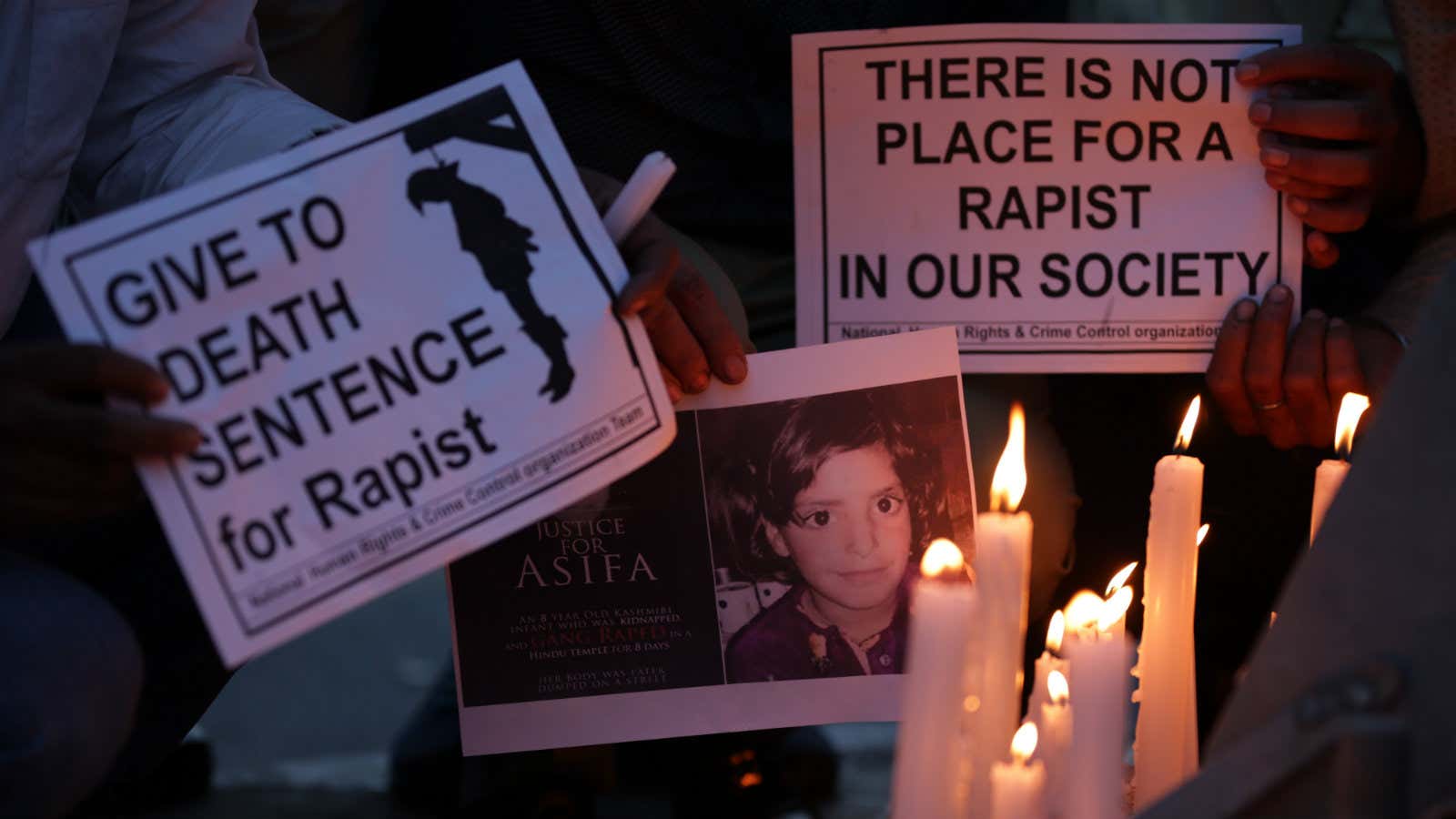Some five years after a gang rape incident roiled India, the country is in the throes of another bout of outrage—this time over the violation and murder of a young girl in the Kathua region of the restive Jammu & Kashmir (J&K) state.
On January 10, an eight-year-old Muslim girl, part of the nomadic Bakerwal tribe, was abducted while she was out grazing her family’s horses. Her body was found in the forest a week later. It emerged that six men, all Hindus, had reportedly conspired to drug, rape, and eventually murder her. Their alleged intention was to scare the Bakerwals out of the area. The brutal crime plays into the deep and long-running religious conflict in J&K.
It’s hard to pick what’s most sickening, the crime itself or the nature of support the alleged perpetrators have received. While many Indians have taken to the streets, Facebook, and Twitter to express shock, grief, and fury over the situation, not everyone is on the same page.
Back in February, over 5,000 people affiliated to a local Hindu nationalist group marched, waving the Indian Tricolour, to protest the arrest of special police officer Deepak Khajuria. The protesters claimed that Khajuria, one of the accused in the case, had been framed. They were joined by ministers in the J&K government, who are also members of India’s ruling Hindu nationalist Bhartiya Janta Party (BJP).
Since then, the backers of the accused have been seen and heard invoking religion and nationalism, raising slogans like Bharat mata ki jai (Hail Mother India) and Jai Shri Ram (Hail Ram). To add to the noxious atmosphere, even a section of lawyers in the deeply polarised state has vociferously come out in support of the accused—last week, they tried to stop the police from filing charges in a local court.
The details in the chargesheet, meanwhile, are unimaginably horrifying, all the more so since the scene of crime was a temple and the accused include police officers.
The case has sparked some incredibly depraved responses on social media, too. Some have virtually celebrated the girl’s killing. In often abusive, expletive-laden posts, they say it was good that the young Muslim was killed. One such banker in the southern state of Kerala was sacked because of the sheer vileness of his social media comments following the murder. Another such post is simply unfit to be literally translated from Hindi.
Of course, these don’t discount the hundreds of genuine expressions of outrage and support for the girl and her family. There have been midnight marches and outpourings of grief from influential as well as ordinary citizens.
In Kerala and Allahabad, some houses now reportedly sport signs asking BJP members to keep away as young girls live inside. A new father in Kerala made an even stronger statement, naming his daughter after the murdered child—he was promptly attacked for his decision. The outrage has now even prompted the United Nations to take note.
But it’s clear that as primitive undercurrents increasingly shape political and social life in India, an innocent child has been tragically caught in the crossfire.
We welcome your comments at ideas.india@qz.com.




